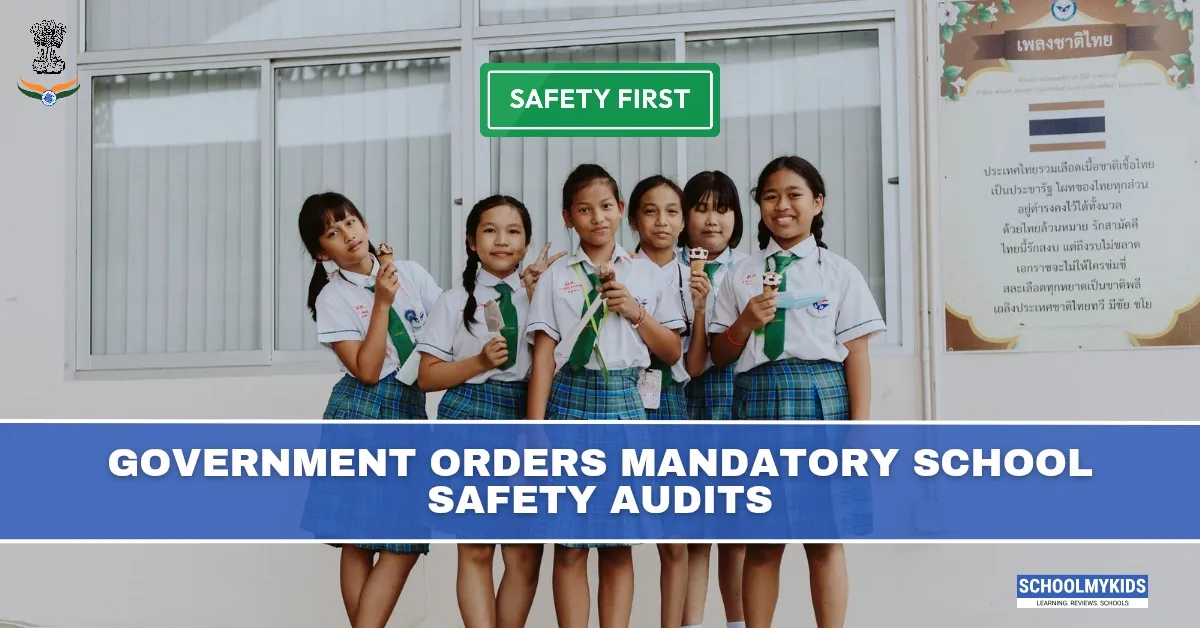Why Now? A Wake-Up Call
In late July 2025, a tragic incident in Jhalawar district, Rajasthan, where a government school building collapsed and claimed the lives of seven children while injuring 28 others, shocked the nation. This disaster, along with other recent structural failures, has prompted the government to take urgent, decisive measures to ensure such tragedies are not repeated.
The National Directive
The Ministry of Education has now issued a nationwide mandate for mandatory safety audits of all schools and child-related facilities across states and Union Territories. These audits must be conducted in line with national safety and disaster management codes. The audits will cover:
- Structural integrity checks for school buildings
- Fire safety systems, emergency exits, and electrical wiring inspections
- Emergency preparedness, including evacuation drills and first-aid training
- Psychosocial support systems, such as counseling, peer-support programs, and community involvement
- 24-hour incident reporting for any hazardous event or near-miss
Priority Areas and Oversight
- Structural and Electrical Safety: Inspections for cracks, weakened foundations, faulty wiring, and outdated fire systems.
- Training & Drills: Collaboration with local firefighting units, police, and medical teams for regular mock drills.
- Mental Health Support: Schools must create accessible counseling services and peer networks to support student well-being.
- Accountability: Failure to report or address hazards will attract strict administrative action.
State and UT-Level Actions
Chandigarh
Chandigarh has issued one of the most comprehensive safety audit frameworks so far, including infrastructure assessment, mental health measures, and disaster preparedness. The deadline for completing these audits is August 30, with School Management Committees, Parent–Teacher Associations, and community members actively involved.
Kerala
In Kottarakkara district, the state finance minister has mandated immediate audits for all schools, focusing on electrical safety and demolition of unsafe buildings. The work must be completed by August 15.
Uttarakhand
After another school building collapse incident in the state, the Chief Minister has ordered immediate inspections of all school infrastructure, with instructions to repair or reconstruct unsafe structures without delay.
Nagpur, Maharashtra (Minority Schools)
The State Minority Commission has directed all minority-run schools to set up four essential committees within a week: school management, women’s grievances, student safety, and infrastructure monitoring. Schools failing to comply risk losing their minority status.
Why This Matters
| Focus Area | Purpose & Impact |
| Prevent Future Tragedies | Identifies and corrects hazardous conditions before they cause harm. |
| Holistic Safety Culture | Integrates infrastructure checks with mental health care. |
| Rapid Response | 24-hour reporting ensures quick intervention and containment. |
| Community Engagement | Promotes shared responsibility among parents, staff, and local authorities. |
While safety guidelines already existed under the National Education Policy 2020, NDMA’s School Safety Policy, and the Performance Grading Index, this directive transforms them from recommendations into binding, enforceable mandates with deadlines and accountability measures.
Conclusion
The new mandatory safety audit policy represents a major shift in how India approaches school safety. It is not only about preventing building collapses but also about fostering a culture where physical security, mental well-being, and community involvement go hand in hand. From Chandigarh’s detailed framework to Kerala’s rapid deadline, each region is adapting the mandate to local realities. The true measure of success will be consistent implementation and the willingness of all stakeholders — from government bodies to parents — to keep safety at the forefront of education.









Be the first one to comment on this story.